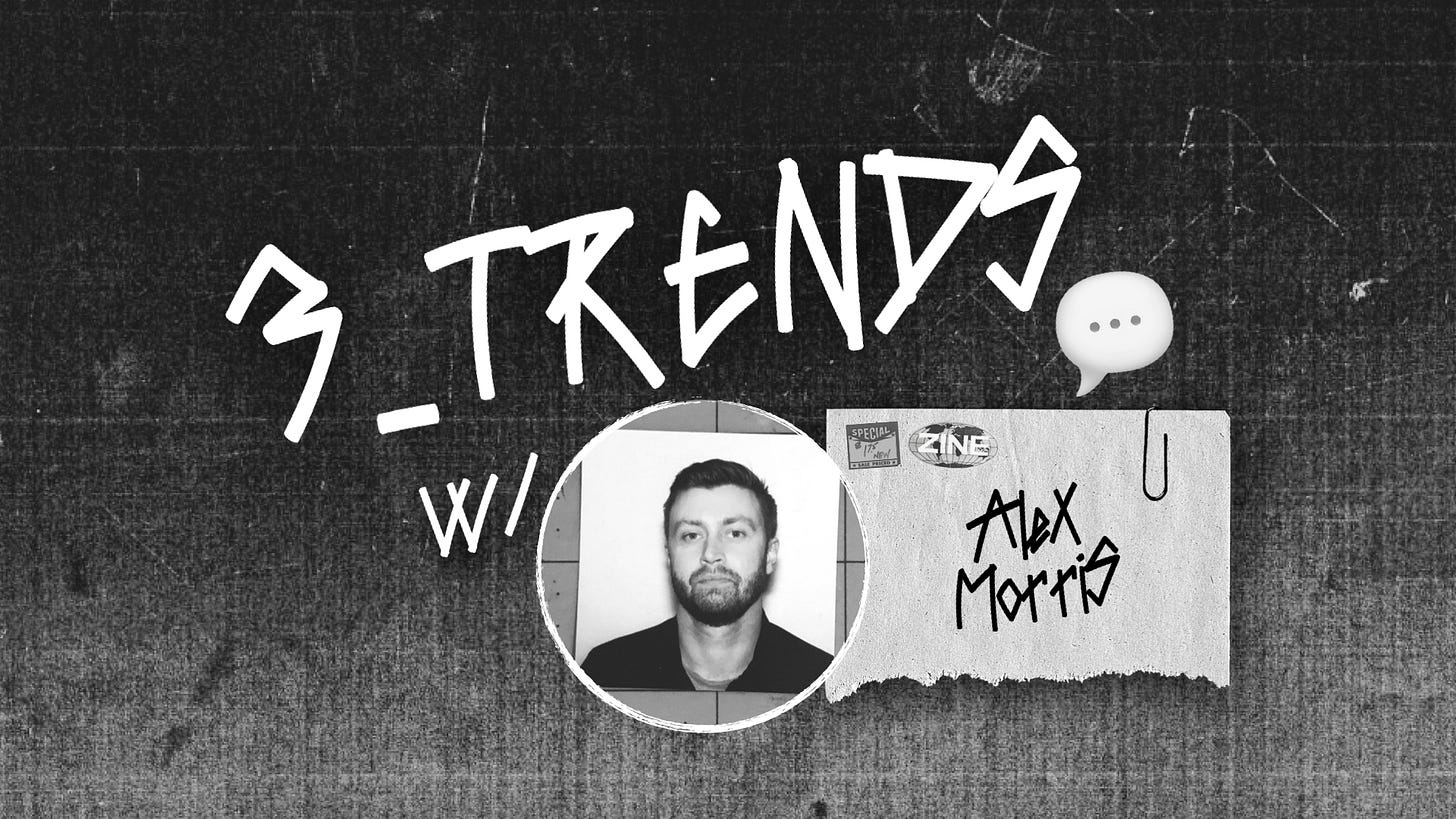3_TRENDS_Vol.12: Alex Morris: Assisted Socializing, Memory Management + Professional Amateurs
Vol.12
3_TRENDS is an interview series with the world's leading cultural researchers and thinkers, sharing their favorite overlooked trends.
Alex Morris (AM) is the author of The Strategy and Planning Scrapbook and the resulting newsletter: STRAT_SCRAPS. Alex describes himself as a shoplifter of knowledge. He is currently a Strategy Director at AnalogFolk…


